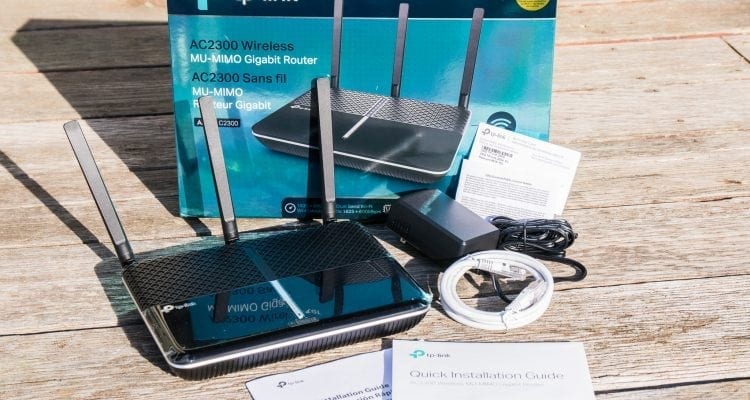The Looks
Wi-Fi router designs are fairly similar across different manufacturers, especially the two and three antenna models. The TP-Link Archer C2300 takes on the traditional rectangular, black plastic design with a mesh-type enclosure.
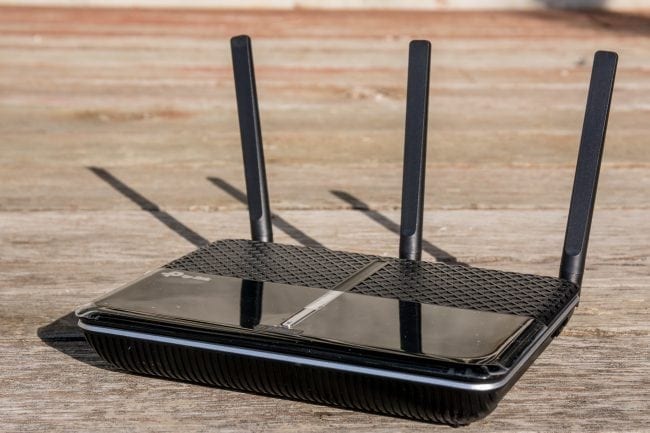
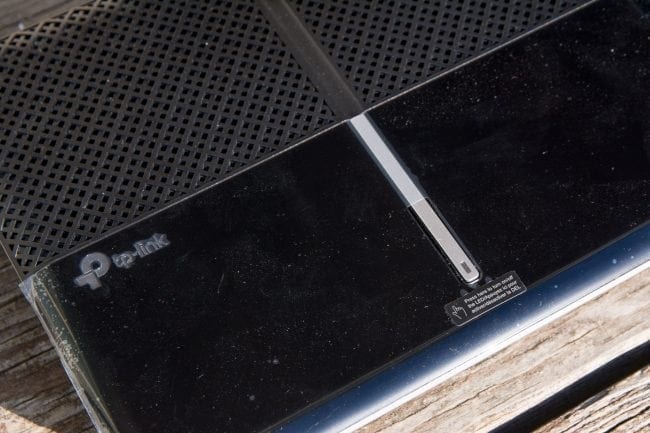
The top of the Archer C2300, being mesh to help passively cool the components, is also home to the status LEDs. Depending on where you have the router located, you may not be able to see what is going on by just looking at the unit. If you press and hold the silver little button, you can toggle the status LEDs on and off.
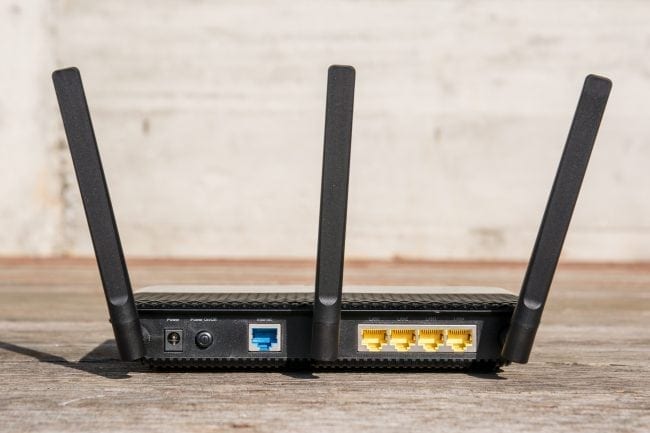
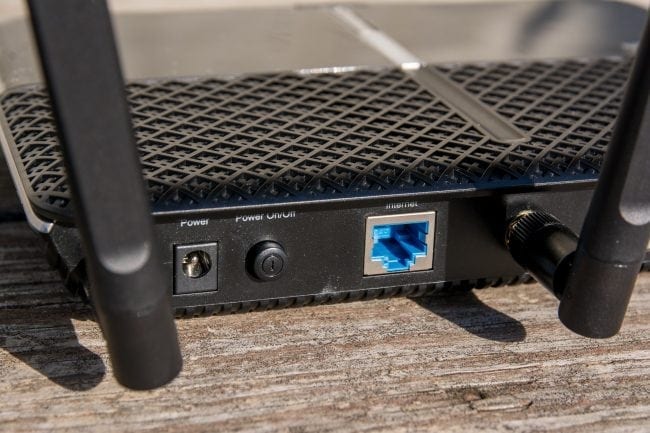
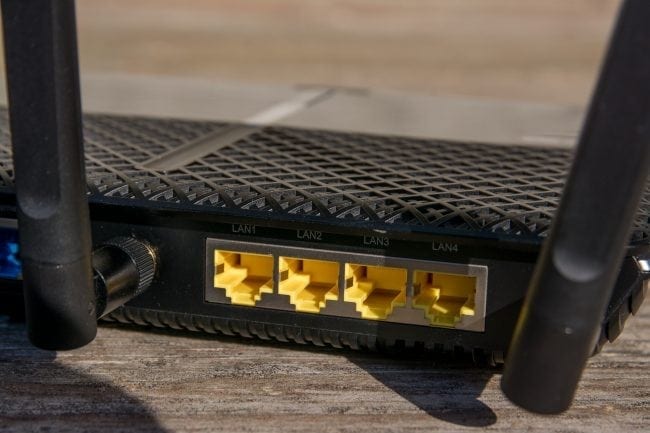
The back is where the interactions happen. The three antennas are spaced apart across the back with the Ethernet ports, power port and power button nestled between them. I do have to say that I like how you can detach the antennas and swap them with larger gain Wi-Fi antennas if needed. Some manufacturers I find go with the built-in antennas that you can rotate and fold but cannot remove or upgrade if you wanted to.
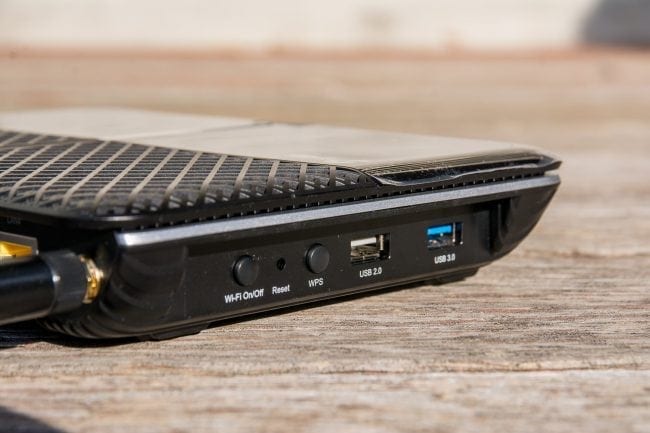
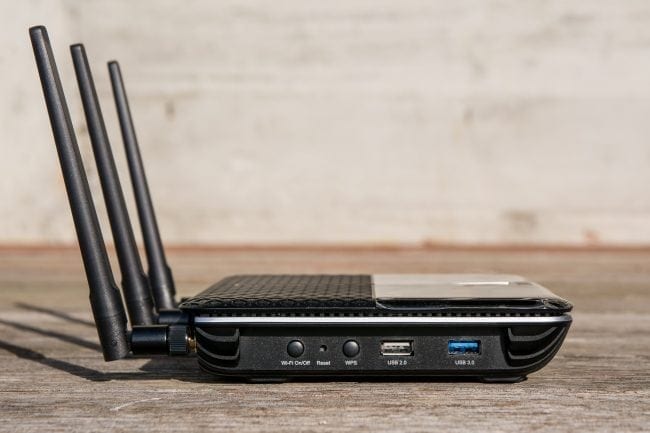
When you move over to one side of the Archer C2300, you are presented with the Wi-Fi on/off button, the reset button (you need a pin!) and the two USB ports: a USB 2.0 and USB 3.0. Yes, you can attach a USB drive to share access to it across your home network!
If you flip the router over to see underneath, you can see that they carried the mesh-type design on the bottom to help passively move air about the internals of the router.
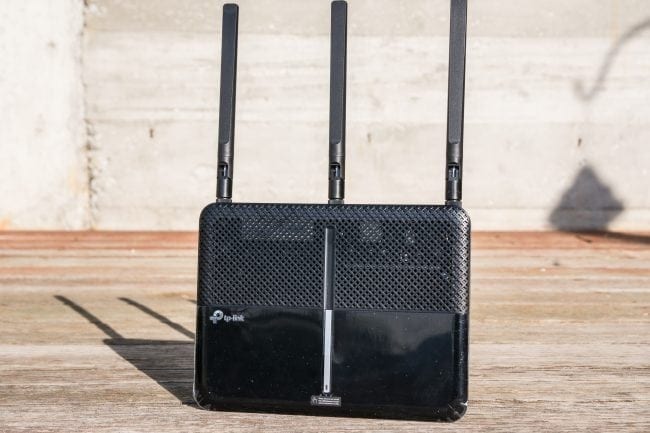
There are also two mounting holes so you can hang it up on a wall out of the way if you needed to. If you wall-mounted the Archer C2300, you could then make better use of those status LEDs and, of course, you can position the antennas so they point upwards when mounted that way as well.

